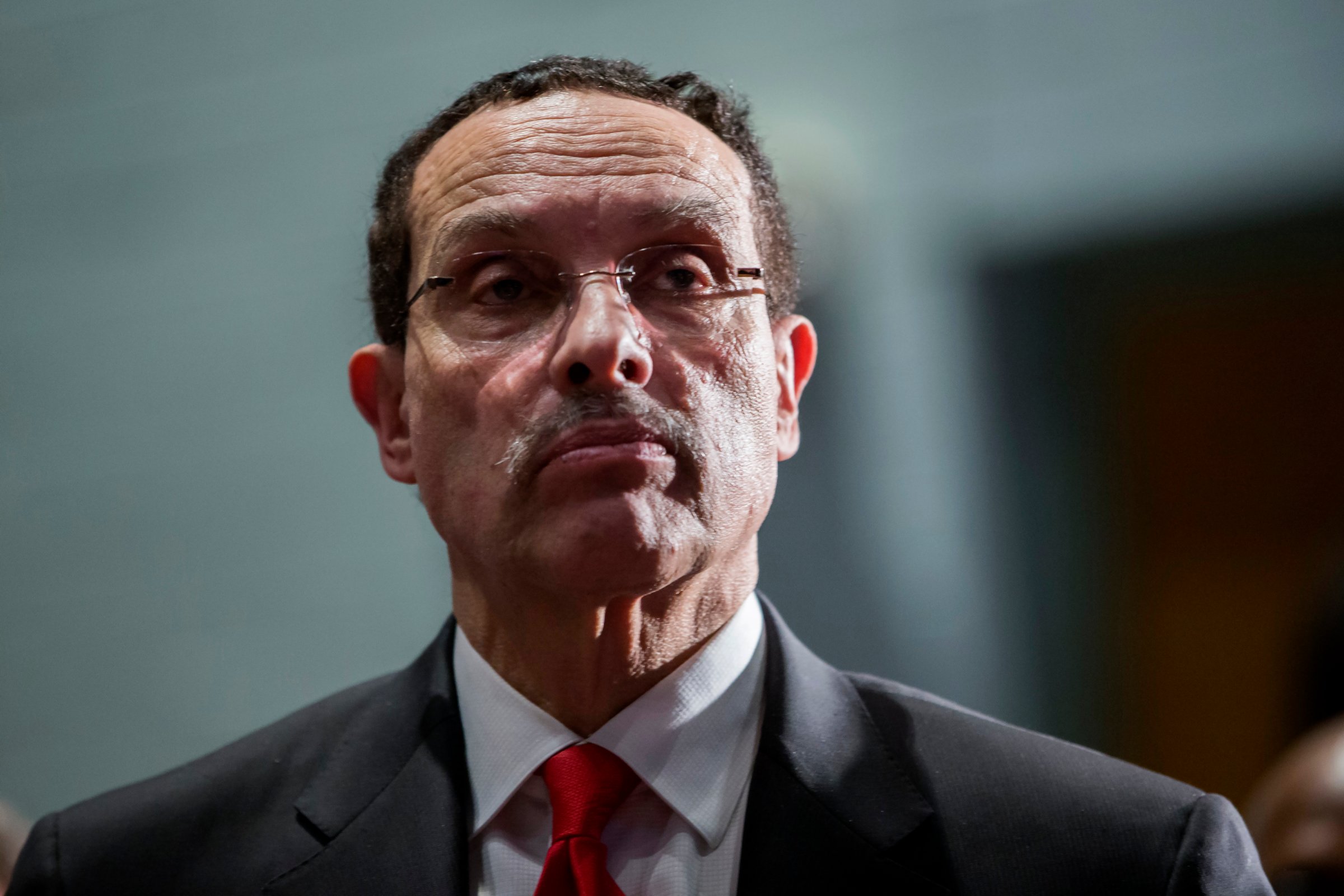
Conservatives in the House of Representatives grilled a panel of Washington D.C. law enforcement officials on Friday about a pending law that would decriminalize possession of small amounts of marijuana in the nation’s capital, despite Mayor Vincent Gray’s refusal to send council members to testify.
Eleanor Holmes Norton, D.C.’s non-voting congresswoman, testified representing the district at a House Oversight subcommittee hearing, telling lawmakers Gray believed D.C. was being singled out in its effort to enact legislation reducing fines for possession of small amounts of marijuana similar to laws passed in 18 states.
Norton said the decision to hold the hearing was “quaint,” stressing that D.C. has the ability to self-govern. But subcommittee chairman Rep. John Mica (R—Fla.), who held a fake joint after his opening statements, stressed Friday’s hearing was not intended to single out the District. “We are not here to negate the District’s laws. We’re here to review its principles,” he said.
Mica expressed concern over a potential crossover between federal and local law enforcement agencies. ‘This particular change in law does effect a number, in fact 26 federal agencies in the District of Columbia that are charged the responsibility of law enforcement,” he said. He questioned which agency would be responsible for his arrest if he was caught in possession of marijuana with one foot in a U.S. National Park and the other just outside.
Norton said that the law would address racial disparities in arrests for possession of marijuana within the District. She rejected claims made by some lawmakers that the law would interfere with existing federal policies regarding public use and sale of the drug.
“D.C. residents and elected officials were stunned by two recently released studies,” Norton said citing a July 2013 American Civil Liberties Union study that found blacks were nearly eight times as likely to be arrested for possession than whites in D.C., although drug usage rates are broadly similar. “The District, like many other jurisdictions, has taken a very practical step to reduce the outsized arrest and incarceration rates of minorities.
Republican members of the subcommittee, however, called into question whether the law would really impact racial disparity. “I anticipate there will still be arrests for intent to distribute,” Rep. Thomas Massie of Kentucky said Friday. “Will the disparity continue?”
Assistant Chief of D.C. Metropolitan Police Peter Newsham, who also answered questions as a courtesy to the mayor, said later that the law’s full impact would be hard to predict. “Arrests for possession will likely decrease,” he said. “But whether or not enforcement action [on more serious drug crimes] will be taken is hard to say.”
Mayor Gray signed the bill in March, but because Congress has authority over the district—every law passed in D.C. is subject to their approval—there is a 60-day window of Congressional review. Most bills sail through this period with ease, .
Friday’s hearing was the third held by the House Committee on Oversight and Government Reform examining the impact that state marijuana laws have had on federal law. Though none of the other hearings jeopardized the implementation of a jurisdiction’s policy
When asked whether or not he rolled the faux joint himself, Mica responded that his staff members did. “They have more experience,” he said.
More Must-Reads From TIME
- The 100 Most Influential People of 2024
- Coco Gauff Is Playing for Herself Now
- Scenes From Pro-Palestinian Encampments Across U.S. Universities
- 6 Compliments That Land Every Time
- If You're Dating Right Now , You're Brave: Column
- The AI That Could Heal a Divided Internet
- Fallout Is a Brilliant Model for the Future of Video Game Adaptations
- Want Weekly Recs on What to Watch, Read, and More? Sign Up for Worth Your Time
Contact us at letters@time.com